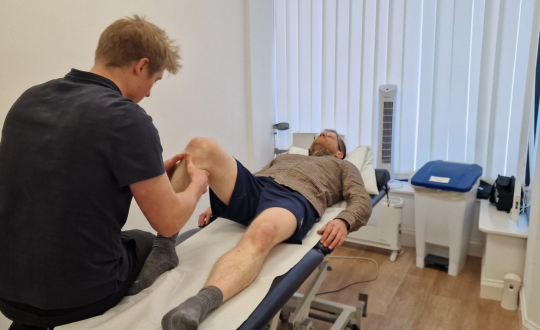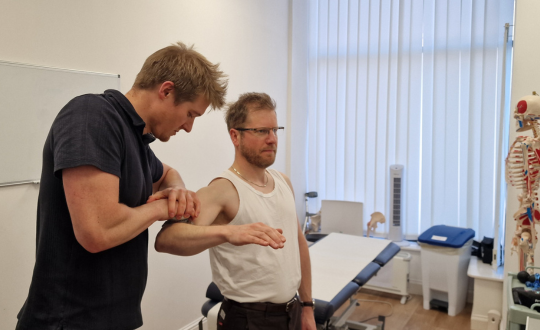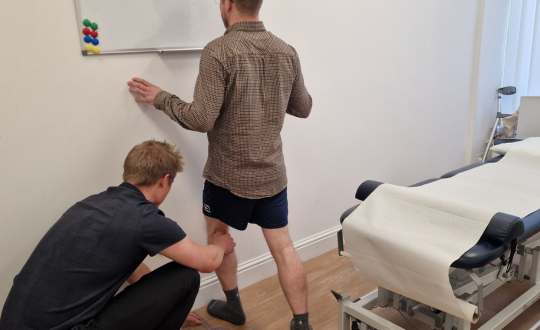
Physiotherapy diagnosis involves assessing and identifying physical impairments, movement dysfunctions, and health conditions affecting the musculoskeletal, neurological, or cardiovascular systems. This process includes a thorough examination of the patient's history, physical assessment, and evaluation of symptoms, posture, mobility, and functional limitations.
A physiotherapist uses this information to determine the underlying causes of pain, movement difficulties, or physical restrictions. The goal is to create an individualized treatment plan aimed at restoring function, improving mobility, and enhancing quality of life. Accurate diagnosis is essential to providing targeted interventions, such as exercises, manual therapy, and education to promote recovery and prevent further injury.
What to expect from your appointment:
-
A comprehensive evaluation of your pain, symptoms, underlying causes, and personal circumstances, including injury and medical history.
-
A treatment and exercise rehabilitation plan grounded in evidence-based practices with treatment goals tailored to your needs and lifestyle.
-
Thoughtful consideration of your individual circumstances and lifestyle.
-
A customized exercise rehabilitation program to support and guide your recovery.
-
Education & advice on how to manage symptoms at home, prevent future injuries, and make lifestyle adjustments to support your recovery.
Taking a proactive approach to your injuries or concerns can significantly reduce their impact on your lifestyle. Our goal is not just to rehabilitate your injury but to educate you on the underlying causes, empowering you to prevent future issues. We are committed to helping you stay active and enjoy the activities you love for as long as possible. If further investigation is needed, we’ll guide you through the referral process and ensure you understand each step along the way.


What do we mean by “Diagnosis”?
This refers to identifying the root cause of a your pain, dysfunction, or physical impairment. It involves understanding how an injury, condition, or disease affects movement, strength, and function. It involves pinpointing the specific mechanical or functional issues contributing to symptoms. This allows your physiotherapist to create a targeted treatment plan aimed at improving movement, reducing pain, and restoring function, rather than just addressing the symptoms.
Treatment may include any combination of the following:
-
Hands-on Manual Therapy
-
Exercise rehab
-
Stretching & Mobility
-
Cryotherapy & Compression
-
Posture and Movement Education
-
Lifestyle changes / adaptations
-
Deep Tissue/Remedial Massage
-
Taping/Bracing
